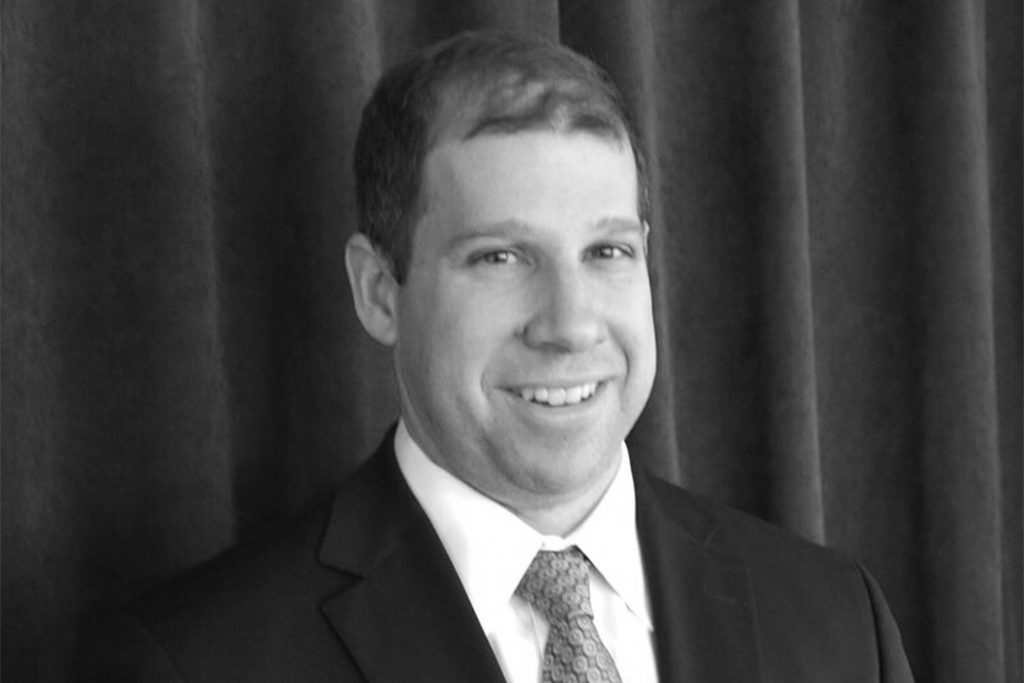A public rights advocate has taken the novel step of applying “the squeaky wheel” adage to equitable law enforcement and in doing so has exposed a significant flaw in how disputes are uncovered and resolved—or not resolved. Jonathan Miller brought his insights to Boston College Law School March 22 during his visit as a Senior Fellow with the Rappaport Center for Law and Public Policy.
Miller is the legal director of the Public Rights Project, a nonprofit that focuses on expanding legal access to historically disenfranchised populations. He began his Law School community address, “Toward Equitable Enforcement: Moving Beyond the Squeaky Wheel Problem of a Complaint-Based System,” by reflecting on a case from early in his career.
A gay client was being targeted by his neighbor due to his sexual orientation. Miller recounts how responsive the legal system was to the situation. A civil rights injunction was secured, the neighbor moved, and the process resulted in “real and immediate relief” for his client.
The problem, according to Miller, is that these resolutions are not easy to come by. Our enforcement systems are heavily reliant on complaints. Until an individual brings unlawful behavior to the attention of relevant agencies and governing bodies, little is done to enforce the laws that are designed to protect people and communities from harm. Miller calls this a “resident initiated process” that is “individualized.” This system is widely deployed across the country, to the point that many people never think twice about it.
Because the system requires people to take affirmative action, of particular concern to Miller are the inequities inherent in who feels comfortable doing so. In his experience, this dependence “on who calls” often “deploys the enforcement machinery of these offices in a way that reinforces inequity.” The system and its concomitant benefits flow based not necessarily on need, but often on who has the knowledge, access, and wherewithal to lodge a complaint.
Miller points out that those who have been historically oppressed have greater distrust or fear of government, less ability to access the levers of government, are more likely to experience bureaucratic fatigue and self-doubt, and often feel social, cultural, and economic pressure not to complain.
These factors, combined with the simple reality that a successful resolution is usually dependent on an agency investigation, means that things get missed “all the time.” In short, the people who are most vulnerable are often the ones who stay silent. This exacerbates existing inequalities and makes it more difficult for marginalized people to access the resources and remedies that the law provides.
Miller advocates for numerous changes to address this problem. These include updates to the legal system such as addressing biases and rethinking arbitration clauses. Miller also proposes shifting our perspective to include the complainant’s point of view, as is done in claims made under the Americans with Disabilities Act and Title VI of the Civil Rights Act.
On a practical level, Miller highlights the importance of dedicating resources to outreach and education, ensuring people feel comfortable coming forward. Similarly, decoupling action from complaints can be accomplished by creating a more proactive enforcement mechanism. In some cases, such as those involving housing, agencies could conduct inspections regularly rather than waiting for complaints. In others, agencies could begin targeting big problems with rather simple solutions.
To prove his point, Miller recounted the work being done in Seattle to reduce incidents of violence. In addition to taking the usual measures, the mayor realized that over eighty streetlights in the affected area were out because no one had called to complain. By moving to a system of proactive streetlight replacement, the city quite literally shed light on a neighborhood that had been shrouded in darkness due to its complaint-based system.
So long as agencies and groups are prepared to support the effort, proactive enforcement represents the largest opportunity for change, Miller suggested. Ideally, he hopes to move beyond asking “have we received any complaints about this?” to a system that incorporates “creativity, patience, and perseverance.”


